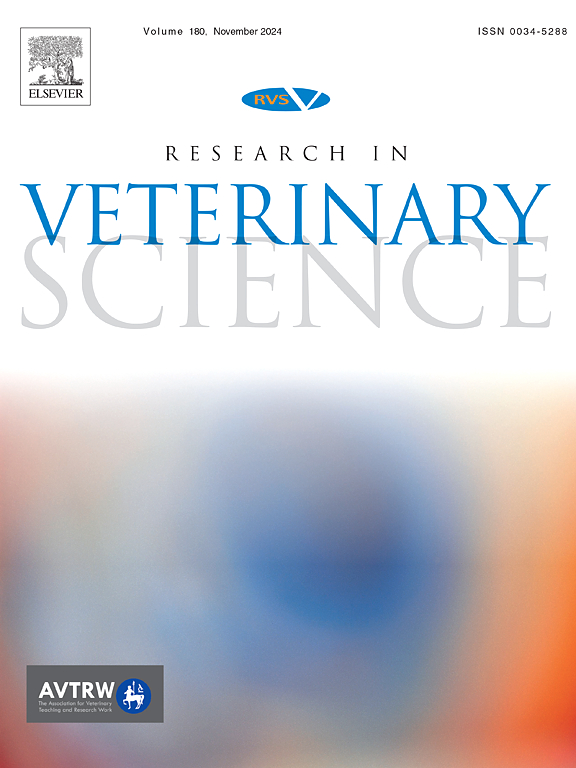狗和猫的癌症登记:历史、现状和标准化工作的叙述性回顾
IF 2.2
3区 农林科学
Q1 VETERINARY SCIENCES
引用次数: 0
摘要
癌症严重影响伴侣动物的健康,肿瘤是宠物死亡的主要原因。虽然宠物和人类共享家庭环境,狗和猫可以作为环境致癌物的哨兵物种,但经过几十年的研究,宠物的癌症监测仍然是支离破碎的。这篇叙述性综述的目的是评估动物癌症登记处(ACRs)的演变和现状,突出历史里程碑和具有全球视角的关键方法。重点介绍了不同类型的癌症登记处及其在癌症监测中的不同作用和相关问题。不一致的诊断标准、有限的标准化和缺乏集中的数据库阻碍了兽医肿瘤学结果的可比性。最近的倡议,如全球兽医癌症监测倡议(GIVCS)和兽医癌症指南和协议(VCGP),寻求使癌症报告和编码系统标准化,并促进将兽医和人类肿瘤研究联系起来的“同一个健康”方法。加强数据库之间的标准化和数据共享对于推进伴侣动物的癌症监测至关重要,这对兽医和公共卫生都有好处。本文章由计算机程序翻译,如有差异,请以英文原文为准。
Cancer registration in dogs and cats: A narrative review of history, current status, and standardization efforts
Cancer severely affects the health of companion animals, with neoplasia being a leading cause of death in pets. Although pets and humans share the home environment and dogs and cats can serve as sentinel species for environmental carcinogens, cancer surveillance in pets remains fragmented after decades of studies. The aim of this narrative review is to assess the evolution and current status of animal cancer registries (ACRs), highlighting historical milestones and key methodologies with a global perspective. The different types of cancer registries, their different roles and related issues in cancer surveillance are highlighted. Inconsistent diagnostic criteria, limited standardization, and lack of centralized databases hinder the comparability of results in veterinary oncology. Recent initiatives, such as the Global Initiative for Veterinary Cancer Surveillance (GIVCS) and the Veterinary Cancer Guidelines and Protocols (VCGP), seek to standardize cancer reporting and coding systems and promote a One Health approach that links veterinary and human oncology research. Increased standardization and data sharing between databases is critical to advancing cancer surveillance in companion animals, benefiting both veterinary and public health.
求助全文
通过发布文献求助,成功后即可免费获取论文全文。
去求助
来源期刊

Research in veterinary science
农林科学-兽医学
CiteScore
4.40
自引率
4.20%
发文量
312
审稿时长
75 days
期刊介绍:
Research in Veterinary Science is an International multi-disciplinary journal publishing original articles, reviews and short communications of a high scientific and ethical standard in all aspects of veterinary and biomedical research.
The primary aim of the journal is to inform veterinary and biomedical scientists of significant advances in veterinary and related research through prompt publication and dissemination. Secondly, the journal aims to provide a general multi-disciplinary forum for discussion and debate of news and issues concerning veterinary science. Thirdly, to promote the dissemination of knowledge to a broader range of professions, globally.
High quality papers on all species of animals are considered, particularly those considered to be of high scientific importance and originality, and with interdisciplinary interest. The journal encourages papers providing results that have clear implications for understanding disease pathogenesis and for the development of control measures or treatments, as well as those dealing with a comparative biomedical approach, which represents a substantial improvement to animal and human health.
Studies without a robust scientific hypothesis or that are preliminary, or of weak originality, as well as negative results, are not appropriate for the journal. Furthermore, observational approaches, case studies or field reports lacking an advancement in general knowledge do not fall within the scope of the journal.
 求助内容:
求助内容: 应助结果提醒方式:
应助结果提醒方式:


